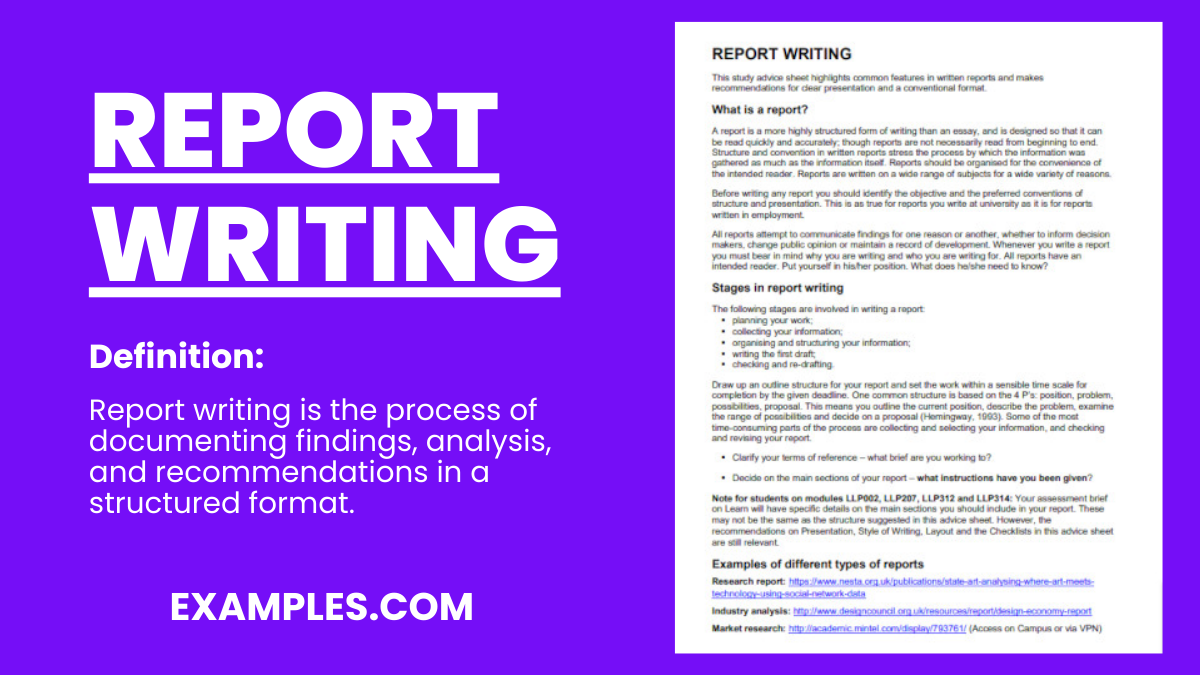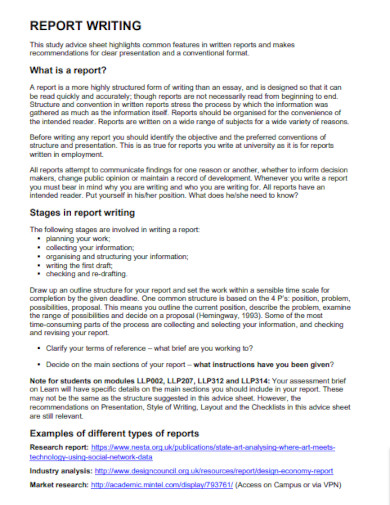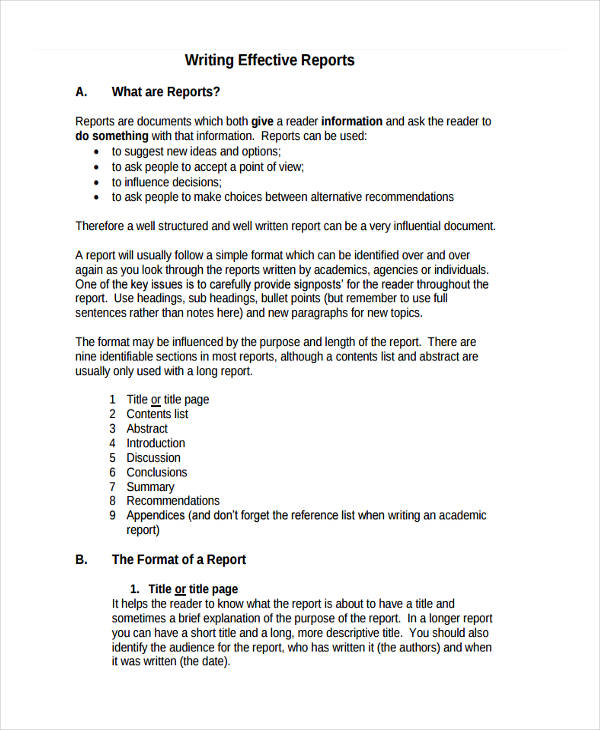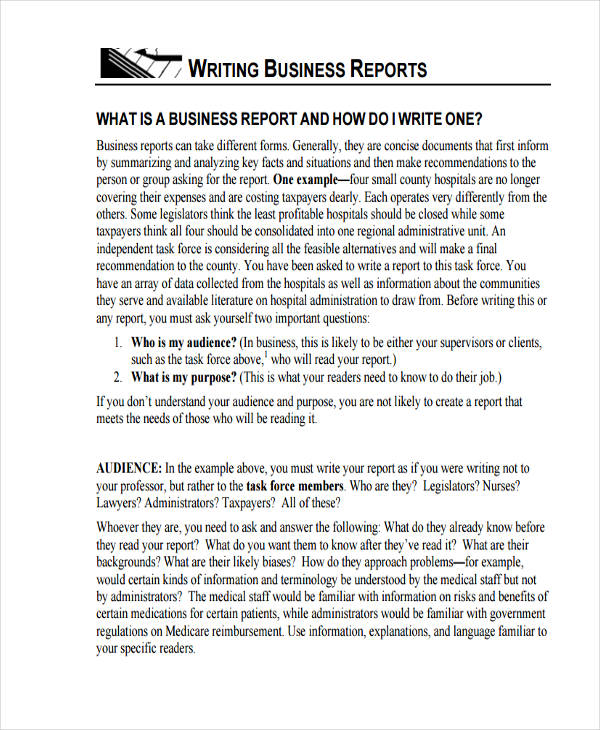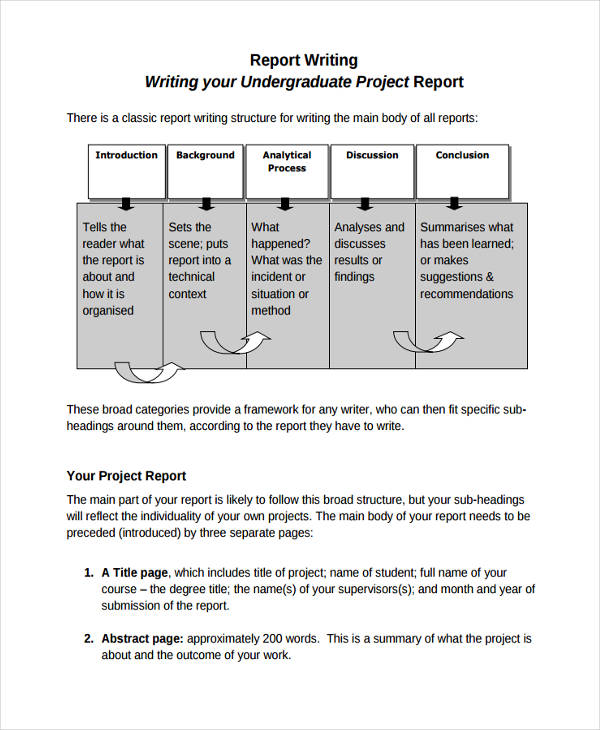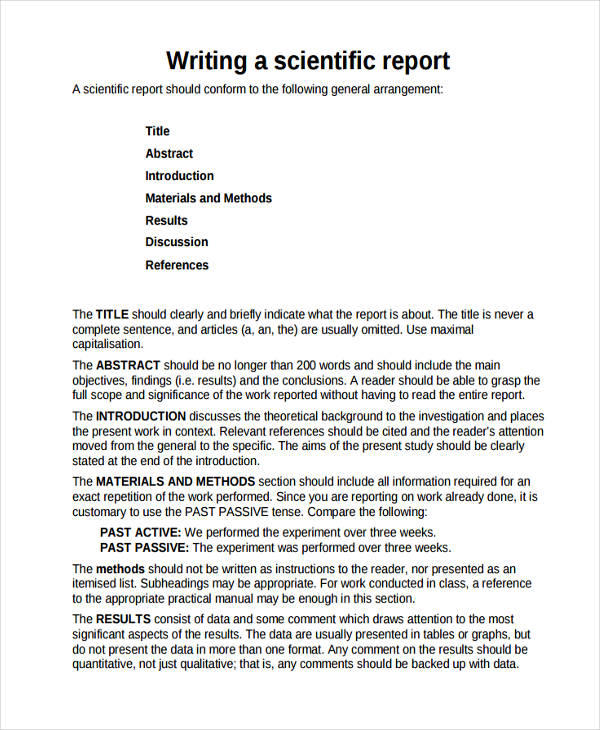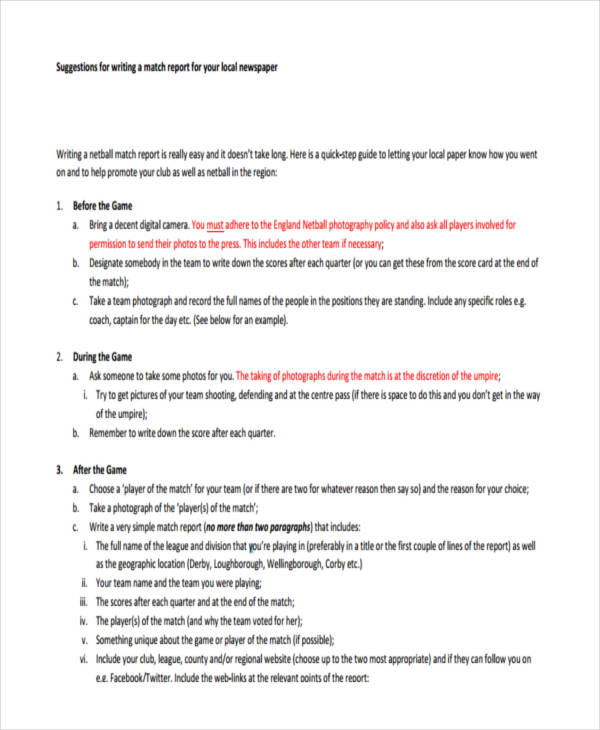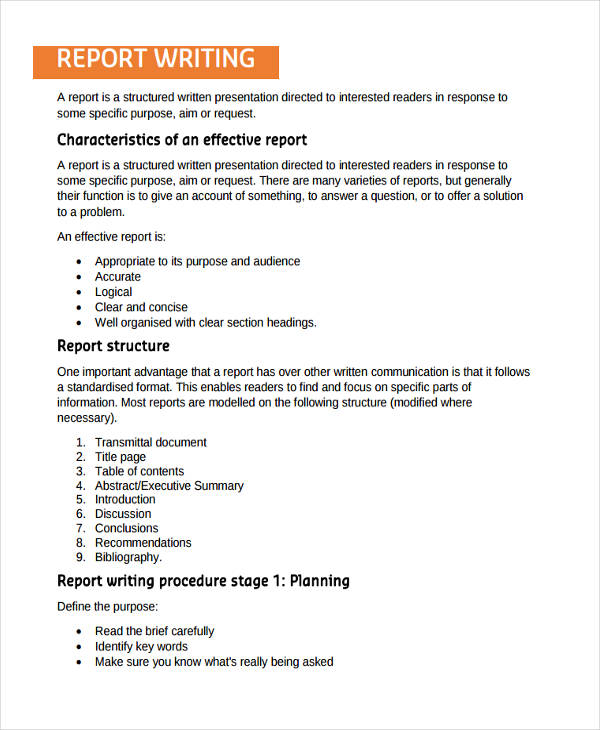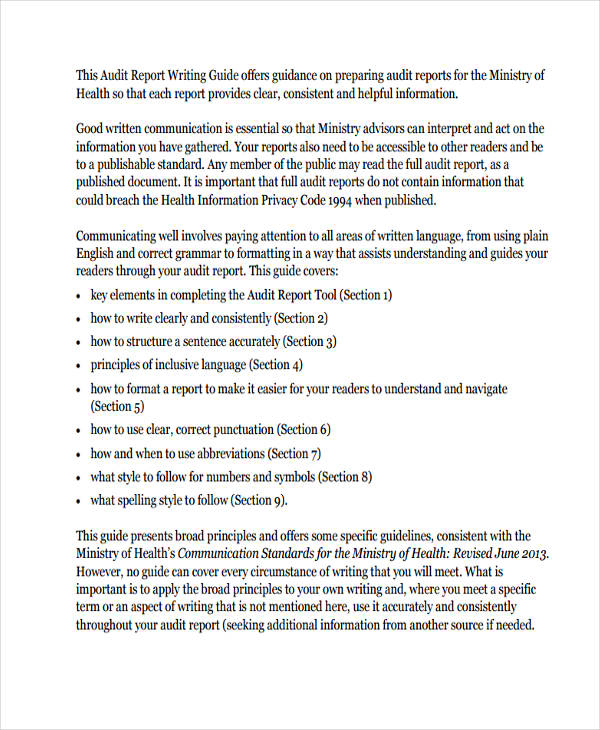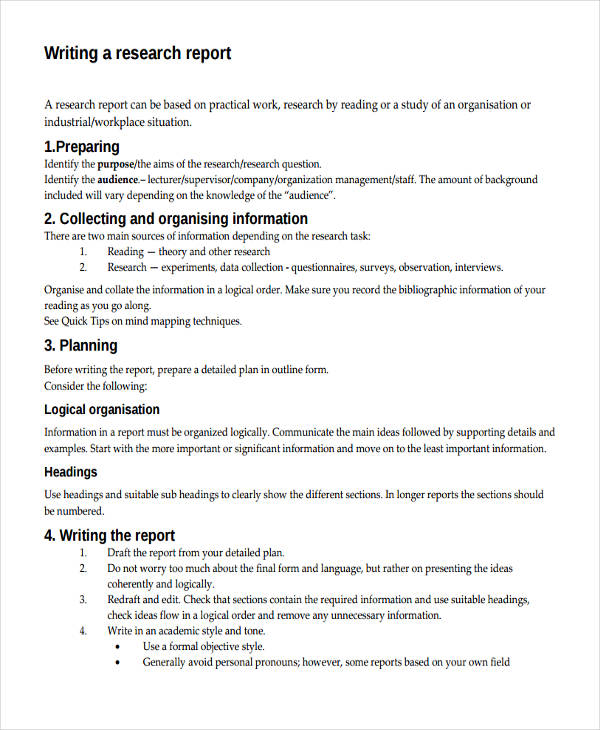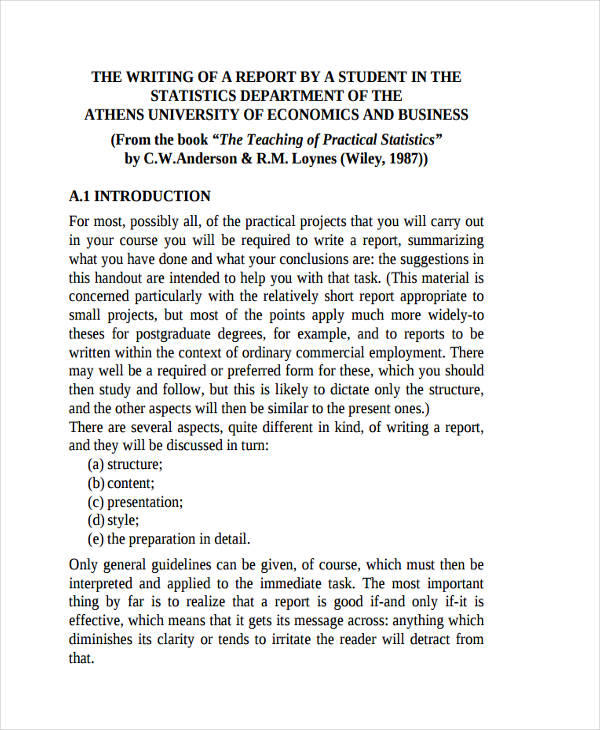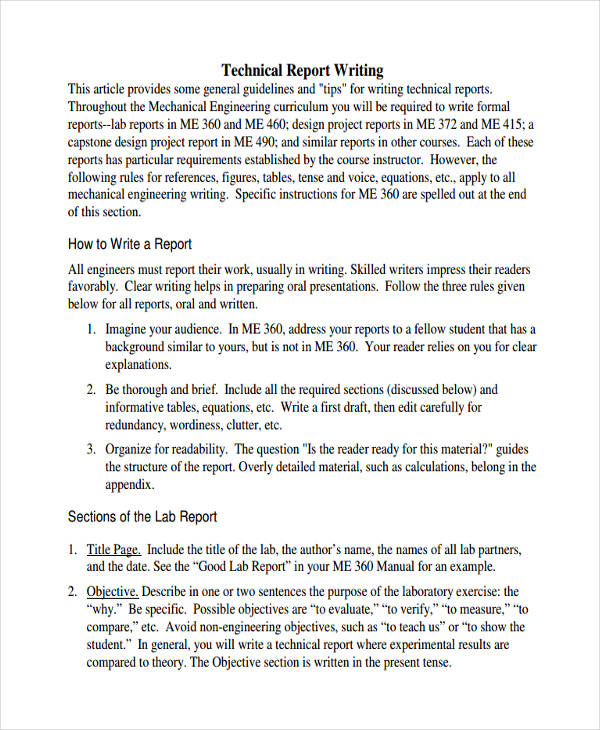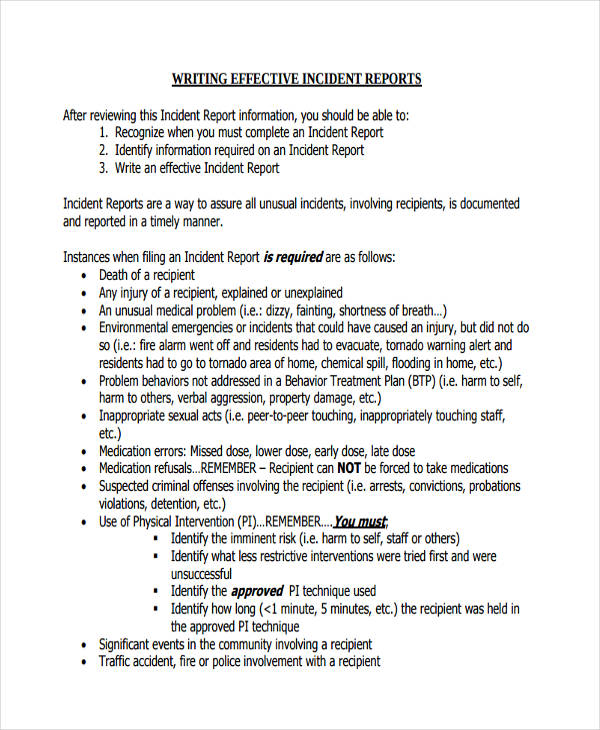18+ Report Writing Examples to Download
You don’t necessarily have to have great writing skills when you’re writing a report. You just need to know some basic techniques and guidelines along the way to make a truly compelling one. Using report templates can also help you structure your content more effectively, making the process easier and faster.
Furthermore, it is essential and utmost practical to learn and practice business writing when it comes to making reports. It is best to start practicing and writing your reports using report templates, so in the long run it won’t be overwhelming for you. You may refer to the examples below for writing a report.
What is Report Writing?
Report writing is a structured and formal method of writing, aimed at conveying information or findings in a clear, concise, and factual manner. It typically involves presenting research, analysis, or findings on a specific topic, often for business, scientific, or academic purposes. Reports are characterized by their organized format, including sections such as introduction, methodology, results, and conclusion, and are designed to be easily navigable and comprehensible for the intended audience.
Structure/Format of Report Writing
Title Page
Title of the report.
Your name or the name of the author.
Date of submission.
Any relevant organizational or departmental information.
Executive Summary
A brief overview of the report’s main points, findings, and recommendations.
Usually, this section is written last but placed at the beginning.
Table of Contents
A list of report sections and their page numbers for easy navigation.
Introduction
Clearly state the purpose and scope of the report.
Provide background information and context.
Methodology (if applicable)
Describe the research methods, data sources, and tools used to gather information.
Findings/Results
Present the main data, facts, or findings in a structured and organized manner.
Use headings, subheadings, and visuals like charts and tables to enhance clarity.
Analysis
Interpret the data and explain its significance.
Discuss trends, patterns, or relationships observed in the findings.
Conclusion
Summarizes the main points of the report and the findings. It may also restate the purpose or objective.
The Best Example of Report Writing
Title: Market Research Report – Consumer Preferences for Mobile Phones
Introduction: This report presents the findings of a market research study conducted to understand consumer preferences for mobile phones in the fictitious market of “Techville.”
Methodology: We conducted a survey of 500 Techville residents, using both online and in-person questionnaires. The survey included questions about brand preferences, desired features, and price sensitivity.
Findings:
1. Brand Preferences:
- 40% of respondents favored Brand A.
- 30% preferred Brand B.
- 20% had no specific brand preference.
- 10% liked other brands.
2. Desired Features:
- 60% of participants emphasized camera quality.
- 25% considered battery life a top priority.
- 15% prioritized processing speed.
3. Price Sensitivity:
- 70% of respondents were willing to pay up to $500 for a mobile phone.
- 20% were willing to spend between $500 and $800.
- 10% indicated a budget of over $800.
Analysis: The results indicate a strong preference for Brand A, likely due to its reputation for camera quality. The demand for longer battery life and affordability in the $500 price range is significant.
Conclusion: Consumers in Techville exhibit a clear brand preference and prioritize camera quality, battery life, and affordability when choosing mobile phones. Recommendations for manufacturers include improving camera features and offering budget-friendly options.
Short Report Writing
Title: Quarterly Sales Performance Report Q1 2024
Title Page
- Report Title: Quarterly Sales Performance Report Q1 2024
- Prepared for: XYZ Company
- Prepared by: Sales Analysis Team
- Date: April 10, 2024
Executive Summary:
A concise overview highlighting the key findings of the sales performance in the first quarter of 2024, showing a 15% increase in sales compared to Q1 of the previous year, with a significant growth in online sales channels.
Introduction:
Brief introduction to the report, outlining its purpose – to analyze sales performance in Q1 2024 and compare it with Q1 2023.
Findings:
- Overall Sales:
- Total sales revenue increased by 15% compared to Q1 2023.
- Highest-selling products were A and B.
- Sales Channels:
- Online sales grew by 25%, contributing to 60% of total sales.
- In-store sales saw a modest growth of 5%.
- Regional Performance:
- Region X recorded the highest sales growth (20%).
- Regions Y and Z showed steady performance.
Conclusion:
The first quarter of 2024 showed a robust increase in sales, driven primarily by a significant uptick in online sales and strong performance in Region X.
Report Writing for Students
Topic: “The Impact of Online Learning on Student Performance”
Executive Summary
The report aims to analyze the effects of online learning on student performance. It focuses on academic achievements, student engagement, and adaptability to online platforms.
Introduction
This report investigates the impact of online learning, which has become increasingly prevalent due to recent global changes. The main objective is to understand how online learning affects students’ academic performance.
Methodology
Data was collected through surveys and interviews from a sample of 200 high school students. The study also analyzed academic records from the past two academic years.
Findings
- Academic Performance: 60% of students showed improved grades, indicating a positive impact of online learning on academic achievements.
- Engagement: There was a 30% increase in student engagement in online activities and discussions.
- Adaptability: Approximately 70% of the students found it easy to adapt to online learning platforms.
AnalysisThe findings suggest that online learning has a significant positive impact on student performance. Enhanced engagement and adaptability to digital platforms contribute to this improvement.
Conclusion
Online learning has proven to be effective in enhancing student performance. Its flexibility and accessibility play a key role in this success.
How Do You Write a Work Report Example?
[Your Name]
[Your Position]
[Your Department]
[Your Organization]
[Date]
Title: Monthly Sales Performance Report – October 2023
Executive Summary: This report provides an overview of the sales performance for the month of October 2023, including key achievements, challenges, and recommendations for improvement.
Key Achievements:
- Total sales revenue for October: $500,000, surpassing the target of $450,000.
- Sales team achieved a 15% growth in the Southeast region.
- Successful launch of a new product, contributing $50,000 in revenue.
Challenges Faced:
- Increased competition in the Southwest region resulted in a 5% decline in sales.
- Delays in product shipments from the supplier affected inventory levels.
- Customer complaints regarding product quality and delivery times increased by 10%.
Sales Team Performance:
- Sales team members achieved their individual sales targets, with an average of 110% attainment.
- The top-performing sales representative for the month was [Name], exceeding their target by 20%.
Recommendations:
- Address quality and delivery issues to improve customer satisfaction.
- Implement a proactive inventory management system to avoid future supply chain disruptions.
- Introduce sales training on objection handling and customer relationship management to enhance performance.
Conclusion: October 2023 saw remarkable sales growth and some notable challenges. Addressing these issues and building on our achievements will be essential for sustaining our positive momentum.
Report Writing Topics with Samples
- Report on an Event
- Report on Independence Day
- Report on Teachers Day
- Report on Road Accident
- Report on Accident Report on Car
- Report on Field Visit
- Report on Global Warming
- Report on Social Media
- Report on Sports Day
- Report on Blood Donation Camp
- Report on Fire Accident
- Report on Earthquake
- Report on Diwali Celebrations
- Report on Industrial Visit
- Report on Science Exhibition
Types of Report Writing
Report writing varies widely depending on its purpose and audience. Here are some common types of report writing:
Academic Reports
- Purpose: Analyze or discuss academic topics, report experimental research.
- Characteristics: Clear structure (introduction, body, conclusion), methodology, findings, analysis.
- Examples: Research reports, lab reports, book reviews.
Business Reports
- Purpose: Inform management decisions, present business data, provide recommendations.
- Characteristics: Professional tone, structured, data analysis, conclusions, recommendations.
- Examples: Annual reports, sales reports, financial analysis reports.
Technical Reports
- Purpose: Communicate technical or scientific information.
- Characteristics: Detailed, technical language, graphs/charts, results, conclusions.
- Examples: Engineering reports, scientific study reports, technical evaluation.
Progress Reports
- Purpose: Update on the status of a project or activity.
- Characteristics: Periodic updates, focuses on progress, challenges, future plans.
- Examples: Project status reports, performance reports.
Analytical Reports
- Purpose: Analyze issues/problems, interpret data, provide recommendations.
- Characteristics: Data-driven, analysis, interpretation, conclusions, recommendations.
- Examples: Market analysis reports, policy analysis, feasibility studies.
Formal Reports
- Purpose: Provide thorough, structured information or research.
- Characteristics: Long, detailed, formal structure, extensive appendices.
- Examples: Compliance reports, annual general reports, in-depth research reports.
Informal Reports
- Purpose: Routine internal communication within an organization.
- Characteristics: Shorter, less structured, in forms like memos or emails.
- Examples: Internal updates, brief summaries, memos.
Proposal Reports
- Purpose: Propose plans, projects, ideas, seek approval or persuade.
- Characteristics: Persuasive tone, outlines proposals, benefits, feasibility, implementation steps.
- Examples: Business proposals, research proposals, project proposals.
Each type serves a specific purpose and audience, and the style and format can vary significantly from one type to another. Understanding the specific requirements of the type of report you are writing is crucial for effective communication.
Elements/What to Include in a Report Writing
1. Title Page: Includes the report’s title, the author’s name, date, and other relevant information.
2. Abstract or Executive Summary: A concise overview summarizing the main points, findings, objectives, and conclusions of the report.
3. Table of Contents: Lists all the report’s sections, headings, and subheadings along with their page numbers.
4. Introduction: Introduces the topic, outlines the purpose of the report, and provides background information.
5. Methodology: Describes the methods and procedures used in gathering data or information for the report.
6. Findings or Body: The main part of the report, presenting the data or information found, structured in a logical format with clear headings.
7. Analysis: Involves interpreting the findings, discussing implications, patterns, or problems identified during research.
8. Conclusion: Summarizes the main findings, restating the purpose and highlighting the key points of the report.
1. Formal Report Writing
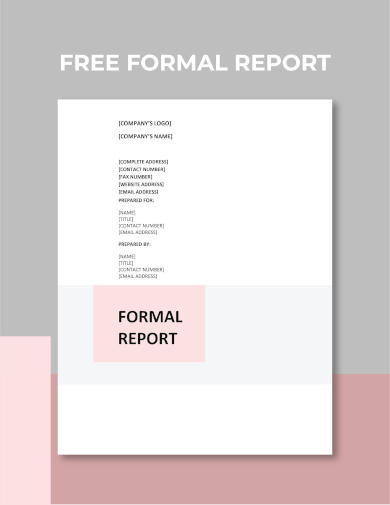
2. Free Annual Report Example

3. Sample Audit Report Example
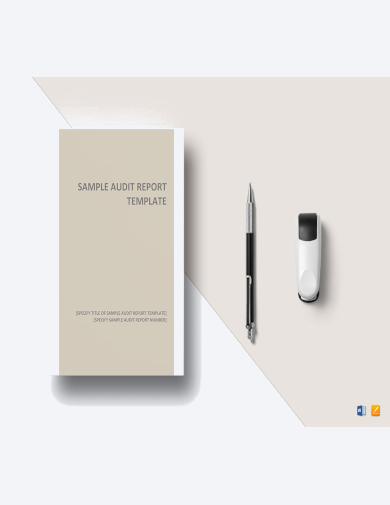
4. Weekly Status Report Example

5. Annual Financial Report Example
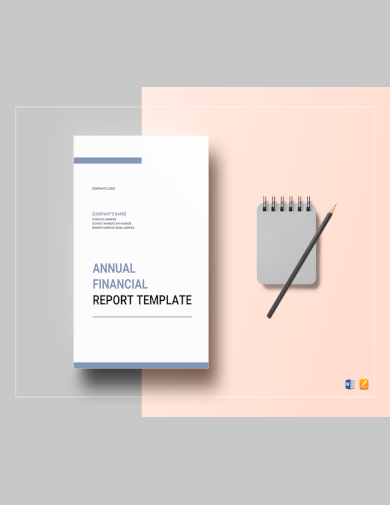
6. Consulting Report Example
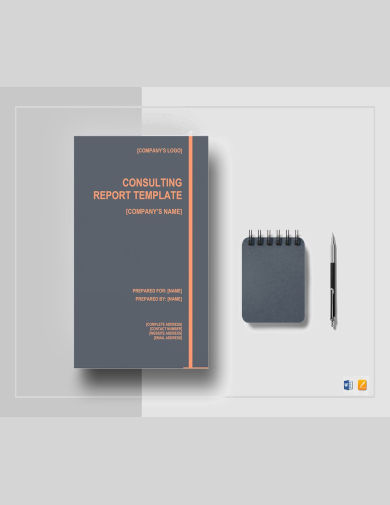
7. Free Monthly Report Example
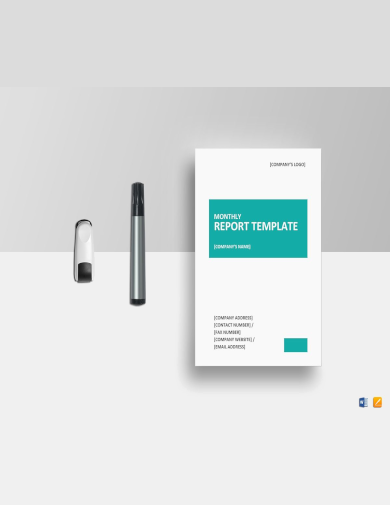
8. Report Writing Examples
9. Effective Report Writing Example
10. Sample Business Report Writing Example
11. Undergraduate Project Report Writing Example
12. Scientific Report Writing Example
13. Newspaper Report Writing Example
What Is the Purpose of a Report?
There are two purposes of a report that is done in formal writing and these are on information and communication.
With these two hand in hand, one of the contributing effects of the purpose of a report is help you decide on making the right decisions.
Second would be to develop good relationships in your work due to the effective information and communication that has been transmitted by the report example.
Third and last would be the supervising on the acquired information based on the report on whether if it meets the actual standard of the organization.
14. Effective Formal Report Writing Example
15. Basic Audit Report Writing Example
16. Sample Research Report Writing Example
17. Example Student Report Writing
18. Free Technical Report Writing Example
19. Free Incident Report Writing Example
The Difference between Essay and Report Writing
Although they tend to mean the same thing which is to write about a particular topic, they greatly vary in terms of style and content.
Essay Writing: Essay writing is more on dealing with the writers’ own personal opinion and subjective understanding regarding the topic he/she is writing about.
Report Writing: While on the other hand, report writing is more concern with the facts and is well detailed in explaining and delivering the purpose of the information through a systematic and organized way.
How To Write a Report in 7 Steps
Writing a report involves a series of structured steps to ensure clarity, coherence, and effectiveness. Here’s a detailed guide to the process:
1. Understand the Assignment
- Clarify the Purpose: Determine the primary goal of your report – is it to inform, analyze, persuade, or recommend?
- Know Your Audience: Tailor the content, language, and complexity based on who will read the report.
2. Choose and Research Your Topic
- Select a Topic: If not assigned, choose a topic relevant to the report’s purpose.
- Conduct Research: Gather information from reliable sources. Note down important points, data, and references.
3. Create an Outline
- Structure Your Report: Plan the layout with headings and subheadings. Common sections include Introduction, Methodology, Findings, Conclusion, and Recommendations.
- Organize Your Points: Arrange your information logically, ensuring a coherent flow.
4. Write the Introduction
- Introduce the Topic: Provide background information and context.
- State the Purpose: Clearly articulate the aim of the report.
- Outline the Structure: Briefly mention how the report is organized.
5. Develop the Body
- Methodology: Explain how you gathered or processed information.
- Findings: Present your data or information clearly, using charts or graphs if necessary.
- Analysis: Interpret the findings, discussing implications or problems.
6. Conclude and Recommend
- Summarize Key Points: Briefly restate the main findings.
- Draw Conclusions: Link the findings back to the report’s purpose.
- Make Recommendations: Suggest possible actions or next steps, if applicable.
7. Revise and Finalize
- Review Content: Check for completeness, accuracy, and clarity.
- Edit for Grammar and Style: Ensure the report is free of grammatical errors and maintains a formal tone.
- Format the Report: Consistently apply formatting rules, and include a title page, contents page, and references.
What are the do’s and don’ts of report writing?
| Do’s of Report Writing | Don’ts of Report Writing |
|---|---|
| Understand Your Audience | Avoid Ambiguity |
| Clarify the Purpose | Don’t Overcomplicate |
| Organize Information | Avoid Personal Opinions |
| Use a Formal Tone | Don’t Overload with Information |
| Be Clear and Concise | Don’t Plagiarize |
| Cite Sources | Don’t Skip Proofreading |
| Proofread and Edit | Avoid Contradictions |
| Include Visuals | Don’t Overuse Technical Jargon |
| Use Appendices Sparingly | Don’t Omit Important Data |
| Include an Executive Summary | Avoid Neglecting Visuals |
FAQ’s
How should I write a report?
To write a report, clarify its purpose, gather relevant information, organize your thoughts logically, use a formal tone, provide clear, concise content, cite sources, and proofread meticulously for accuracy and clarity.
What is simple report writing?
Simple report writing is a concise and straightforward method of conveying information or findings in a clear and direct manner, often without extensive analysis or elaborate formatting.
What should be included in a report?
A report should include a clear purpose, structured sections (introduction, methodology, findings, analysis, recommendations, conclusion), relevant data, citations, visuals (if needed), and adhere to a specific format.


